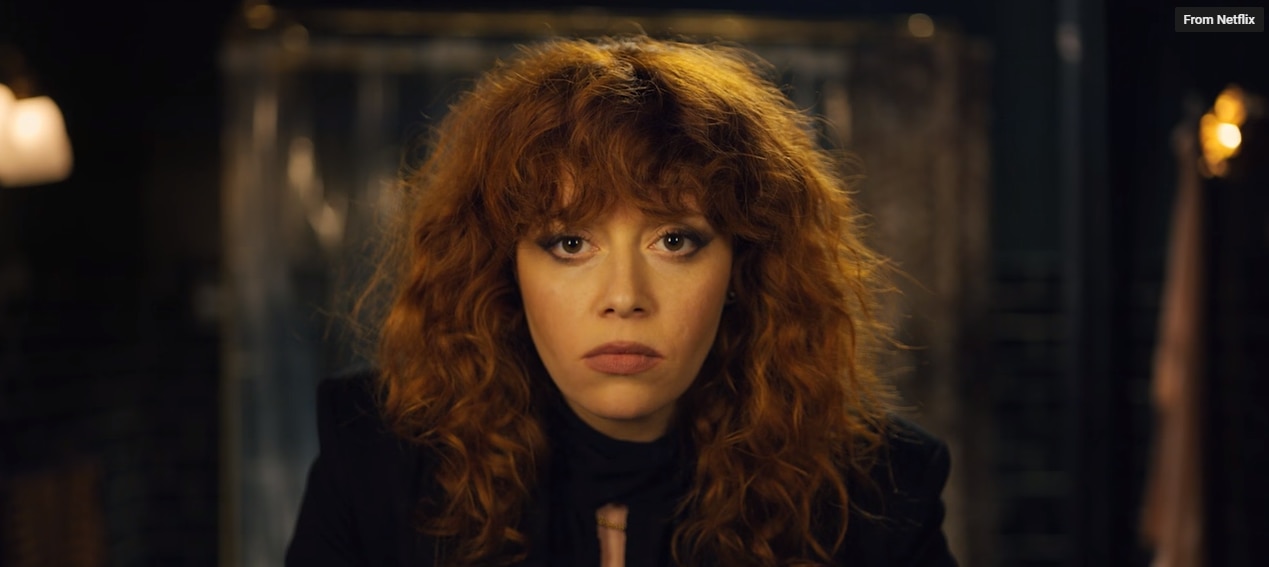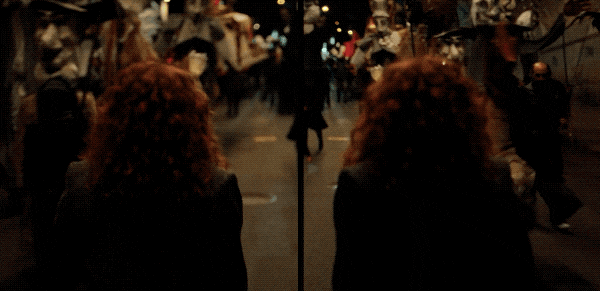Create a free profile to get unlimited access to exclusive videos, sweepstakes, and more!
Russian Doll and the (seemingly) neverending cycle of trauma

WARNING: This piece contains spoilers for Netflix's Russian Doll.
“Buildings aren’t haunted. People are.”
The new Netflix series Russian Doll is fascinating, endlessly bingeable, and one of the cleverest, most innovative series in recent (or not-so-recent) memory. It also exists in the realms of both laugh-out-loud moments, so quick as to require repeat viewings, and deep, devastating emotional weight.
Nadia (Natasha Lyonne) finds herself falling into a Groundhog Day-esque cycle reliving a series of time loops, all of which culminate in her death and restart in the bathroom at her birthday party. She meets Alan (Charlie Barnett), who is experiencing the same thing. The two are linked for reasons they do not understand and realize they are in this together if they want to stop this vicious — really, really vicious — cycle.
Both characters are dealing with personal struggles. Alan has OCD and anxiety, in addition to other possible mental health issues (two of his deaths, including the first loop, are suicides) and refuses to seek treatment. Nadia is a generally messy, chaotic person, though confidently and comfortably so, and is plagued by trauma inflicted upon her growing up with a seriously mentally ill mother (Chloe Sevigny) and the guilt of going to live with her aunt (her mother died within a year of their separation, and on this birthday, her 36th, she is older than her mother ever was).
Even without being a heaping pile of metaphors, the show is excellent and well worth every second of its brief runtime. But for those of us with mental illness, Russian Doll is an absolute gift, understanding experiences that often feel impossible to describe or explain — right down to their cyclical, seemingly unending nature.
Grief, pain, mental illness, addiction, trauma: These experiences are not linear. There is no clear endpoint, and you can find yourself feeling true progress one day only to end up right back where you started by the next. For a week, getting out of bed can be an insurmountable act, followed by two weeks of boundless energy and productivity, back and forth with the tiniest trigger or no rhyme or reason at all. It's just life for some of us. It's no coincidence that this show was inspired by Lyonne's own history of addiction and mental illness, and that rooted-in-reality experience colors the entirety of the season.
I was diagnosed with PTSD three years ago. My PTSD didn't come about the way I always assumed the disorder was "supposed to," meaning it was not one traumatic event but a long-term relationship in which my life was frequently thrown into turmoil. Existence became a series of moments where, without warning, the bottom would drop out of my world, which was its own loop cycle certainly, but this caused repeating experiences of flashbacks, of compulsive behaviors and distrust — rifling through car trunks and junk drawers for any indication that my life would fall apart again.
It's that long, hard, but still beautiful and important time in my life that made me see, beyond the individual experience of living with mental illness and trauma, that Russian Doll is a glimpse into the surreality of being in a relationship where both people have mental illness. Alan and Nadia are constantly attempting to find ways to save each other and themselves, their tied existence literally dependent upon one another. That kind of relationship becomes its own series of loops. Repeatedly watching the person you love fall to pieces — sometimes literally — or lying in bed with them praying they survive the night; the feeling that you and you alone can keep this person intact, and knowing in your heart that this isn't just a feeling but a fact.
When two people have their own simultaneous loops of suffering, coming together can compound that pain, or, if the exact right balance is found, bring about a sense of relief, a shared understanding that each party is worthy and loved. A sense of safety. And as with individual illness, it ebbs and flows.
While there is no cure, there are massive moments of understanding, of sheer epiphany. They don't save us, but they change us at least a little bit, making things make a little bit more sense.
In an especially gruesome death, Nadia's final passing, she coughs up a shard of glass, a piece of a shattered mirror — a memory of her mother.
"She's still inside you."
Nadia lies on the floor, writhing and convulsing, her eyes red and her face turning blue, blood pouring. Her child-self appears over her.
"Are you ready to let her die? This is the day we get free."
The anguish of trauma can be unbearable. It can very literally feel like it's killing us. There have been moments of my life — short of breath, my chest filled with a heavy emptiness — where I've wondered, "Can I die from this? Can I die from sadness?" (I am not joking when I say I've Googled that more than once.) But eventually, it stops. Not permanently — never permanently. But the loops feel more like normal. Control feels possible.
I think that's what letting go really is. It's giving up something that doesn't exist, the woulds and coulds and shoulds, the things beyond our grasp that we desperately wish we could control. But we can't. In theory, we can only control ourselves, but mental illness, trauma, addiction, those things make even that impossible at times.
So we grasp what we can. Sometimes that's as small as remembering to drink water or straighten up the house — not even because those are healthy decisions but because they are tiny things we can do for ourselves that pull us back into a manageable state.
Sometimes the loops don't end. Sometimes they do. Sometimes we get off track and we're in different states of being from the people we love. Sometimes that can change the very next day. And sometimes, we grab a torch, join the parade of the living and march on ready to greet whatever comes next.



























